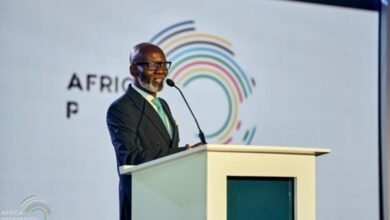African University Hubs : the battle to attract talent
As Africa positions itself as a strategic player in the global economy, countries across the continent are competing to become centers of excellence in higher education. Between national ambitions, investments in innovation, and internationalization strategies, this competition is reshaping the African academic landscape.

Africa, with more than 60% of its population under the age of 25, represents a vast pool for the development of higher education. Faced with growing demand, several states have launched ambitious strategies to position themselves as regional and international education hubs.
The Rwanda case illustrates this dynamic with a proactive internationalization strategy. Since 2017, the number of foreign students has increased sixfold, from around 1,400 to nearly 9,000 in 2024 (ICEF Monitor). The government aims to welcome 1 million students by 2027, investing heavily in university infrastructure and improving academic quality. Minister of Education Joseph Nsengimana emphasizes that, “We want to become a university education hub so that foreign students, especially those from African countries, consider Rwanda as their first choice for higher education,” confirming the country’s determination to become a key educational destination. President Paul Kagame, meanwhile, stresses that “Every Rwandan child should have an opportunity to have an education,” placing education at the heart of national strategy.
North Africa, a Strong Academic Tradition; South Africa, the Uncontested Leader
In North Africa, Tunisia and Morocco benefit from a strong academic tradition. In 2023, four Tunisian universities were ranked among the forty best Arab universities, according to the Association of Arab Universities, which recommends modernizing teaching methods and improving graduate integration into the labor market. Morocco focuses on scientific excellence, with universities such as Cadi Ayyad in Marrakech recognized in the Nature Index for high-quality research output. In 2023, seven Moroccan universities appeared in the Times Higher Education rankings, including Mohammed V University in Rabat. Egypt, on its part, pursues accelerated internationalization: thirty-five universities appear in the 2025 Times Higher Education ranking, compared with twenty-eight the previous year, hosting 43,824 African students from 39 countries.
Training “the best of the best, not just nationally but internationally”

South Africa remains the continent’s undisputed leader. Universities such as Cape Town, Witwatersrand, Stellenbosch, and Pretoria consistently rank among the top 500 worldwide. The University of Cape Town asserts that it trains “the best of the best, not just nationally but internationally,” while the University of South Africa (Unisa), with more than 400,000 students, exemplifies the mega-campus model capable of attracting international students through distance learning.
A Necessary Harmonization of Academic Standards
African university hubs have undeniable strengths: diversity of programs, alignment with labor market needs, quality infrastructure, and the emergence of innovative ecosystems. The combination of academic excellence, industrial proximity, and applied research constitutes a major attraction factor.
Yet challenges remain. Research funding is insufficient in many countries, academic support may be limited, and international recognition of degrees is not always guaranteed. The competition between countries to attract students also calls for harmonized academic standards and strengthened regional cooperation. Equitable access to education remains a priority amid persistent socio-economic inequalities.
Impact on Student Mobility, Research, and Innovation

The establishment of university hubs stimulates intra-African and international student mobility, promotes intercultural exchange, and strengthens collaboration between institutions and businesses. It also fosters the development of innovative solutions tailored to the continent’s challenges, particularly in technology, health, and entrepreneurship. Rwanda stands out for its programs in technology and innovation, while Egypt and Morocco strengthen their positions in scientific and applied research.
Funding and Professional Integration: Keys to Success
Funding remains a decisive factor. Egypt prioritizes a model of substantial public subsidies, South Africa relies on public-private partnerships, and Rwanda also mobilizes philanthropic initiatives. Matching education with employment is another challenge: university incubators in Tunisia or innovation hubs in Kenya serve as models to connect students with the labor market and promote entrepreneurship.
Turning this competition into a collective lever, creating regional centers of excellence, and asserting Africa’s place in global knowledge production
The battle to become an African university hub is far from over. Some countries have already achieved international recognition, while others strive to catch up. Success will depend on the ability to combine academic quality, international attractiveness, innovation, regional cooperation, and professional integration. If these conditions are met, Africa could transform this competition into a collective lever, create regional centers of excellence, and assert its role in global knowledge production.






